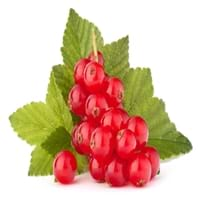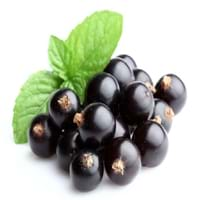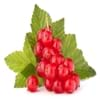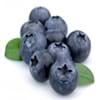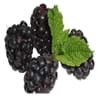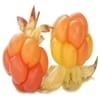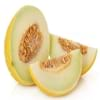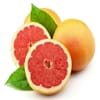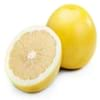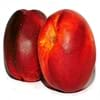Health Benefits
Cancer prevention, Gout treatment, Heart care, Regulation of heart rate, Treatment of rheumatism
Arthritis treatment, Cures gastro-intestinal troubles, Diarrhea treatment, Gout treatment, Heart care, Kidney stone treatment, Liver health, Muscle pain relief, Treatment of alzheimer's disease
General Benefits
Anti oxidant properties, Controls blood pressure, Cures fever, Digestive aid, Healing of wounds, Helps in weight loss, Strengthens bones
Anti oxidant properties, Anti-inflammatory properties, Boosts immune system, Cures fever, Eye care, Fights against infections, Improves blood circulation, Improves eye vision, Maintains healthy cholesterol level, Treatment of common cold
Skin Benefits
Brightens and lightens complexion, Reduces wrinkles, Treatment of acne
Anti-aging benefits, Brightens and lightens complexion, Skin cleansing, Treatment of dark spots, Treatment of skin diseases
Hair Benefits
Protects hair
Acts as moisturizer, Prevents hair loss, Promotes longer and healthier hair, Protects hair, Rejuvenates scalp, Remedy for split ends
Allergy Symptoms
Abnormally rapid heart rate, Anaphylaxis, Breathing difficulty, Hives, Itching, Swallowing difficulties
Abdominal pains, Asthma, Conjunctivitis, Eczema, Itching, Nasal polyps, Runny nose, Skin rash, Swelling
Side Effects
Possibly unsafe during pregnancy
Diarrhoea, Nausea, Vomiting, Might cause change of urine color
Best Time to Eat
Best if taken as a breakfast (or empty stomach), As a snack in the late afternoon, Don't eat after meal, Morning time (before lunch)
Best if taken as a breakfast (or empty stomach), As a snack in the late afternoon, Don't consume at night and before bed, Eat the fresh ones, avoid mixing with any other foods, don't eat after meal., Morning time (before lunch)
Vitamin B5 (Pantothenic Acid)
Vitamin B9 (Folic acid)
Not Available
Vitamin C (Ascorbic Acid)
Vitamin K (Phyllochinone)
Not Available
Lutein+Zeaxanthin
Not Available
Calories in Fresh Fruit with Peel
Calories in Fresh Fruit without Peel
Not Available
Not Available
Calories in Frozen Form
Not Available
Not Available
Calories in Canned Form
Not Available
Not Available
Varieties
Rovada, Stanza, Red Lake, Junifer and Jonkheer van Tets
Ben Sarek, Ben Lomond, Ben Hope, Ben Connan, Ben Avon, Ben Gairn, Ben Dorain, Ben Hope, Ben Sarek, Ben Tirran, Big Ben, Ebony, Foxendown, Titania and Ben Alder
Origin
Europe
Asia, Europe
Soil Type
Moist, Well-drained
Sandy loam, Well-drained
Climatic Conditions
Cold
Cold, Moist
Facts about
- The albino version of red currants known as white currants, are often sold as different fruit.
- Red currant tea is healthy substitute for coffee.
- There are more than 150 varieties of red currants.
- The life of black currant plant is 20-30 years.
- Oil extracted from black currant seeds is used in production of skin care products.
- Black currant berries are major source of food for the birds.
Cocktails
Yes
Not Available
Top Producer
Russia
Russia
Other Countries
Belgium, France, Germany, Ireland, Italy, Netherlands, Poland, Portugal, Scotland, Spain, Sweden, United Kingdom
New Zealand, Poland, United Kingdom, United States of America
Top Importer
Germany
Not Available
Top Exporter
Russia
Not Available
Botanical Name
Ribes rubrum
Ribes nigrum
Synonym
Not Available
R. nigrum forma chlorocarpum or R. nigrum var. chlorocarpum or R. nigrum var. sibiricum or R. cyathiforme or R. olidum
Subkingdom
Tracheobionta
Tracheobionta
Division
Magnoliophyta
Magnoliophyta
Class
Magnoliopsida
Magnoliopsida
Order
Saxifragales
Saxifragales
Family
Grossulariaceae
Grossulariaceae
Species
R. rubrum
R. nigrum
Generic Group
Saxifrage
Saxifrage
Difference Between Red Currant and Blackcurrant
We might think that Red Currant and Blackcurrant are similar with respect to nutritional value and health benefits. But the nutrient content of both fruits is different. Red Currant and Blackcurrant Facts such as their taste, shape, color, and size are also distinct. The difference between Red Currant and Blackcurrant is explained here.
The amount of calories in 100 gm of fresh Red Currant and Blackcurrant with peel is 56.00 kcal and 63.00 kcal and the amount of calories without peel is Not Available and Not Available respectively. Thus, Red Currant and Blackcurrant belong to Low Calorie Fruits and Low Calorie Fruits category.These fruits might or might not differ with respect to their scientific classification. The order of Red Currant and Blackcurrant is Saxifragales and Saxifragales respectively. Red Currant belongs to Grossulariaceae family and Blackcurrant belongs to Grossulariaceae family. Red Currant belongs to Ribes genus of R. rubrum species and Blackcurrant belongs to Ribes genus of R. nigrum species. Beings plants, both fruits belong to Plantae Kingdom.
